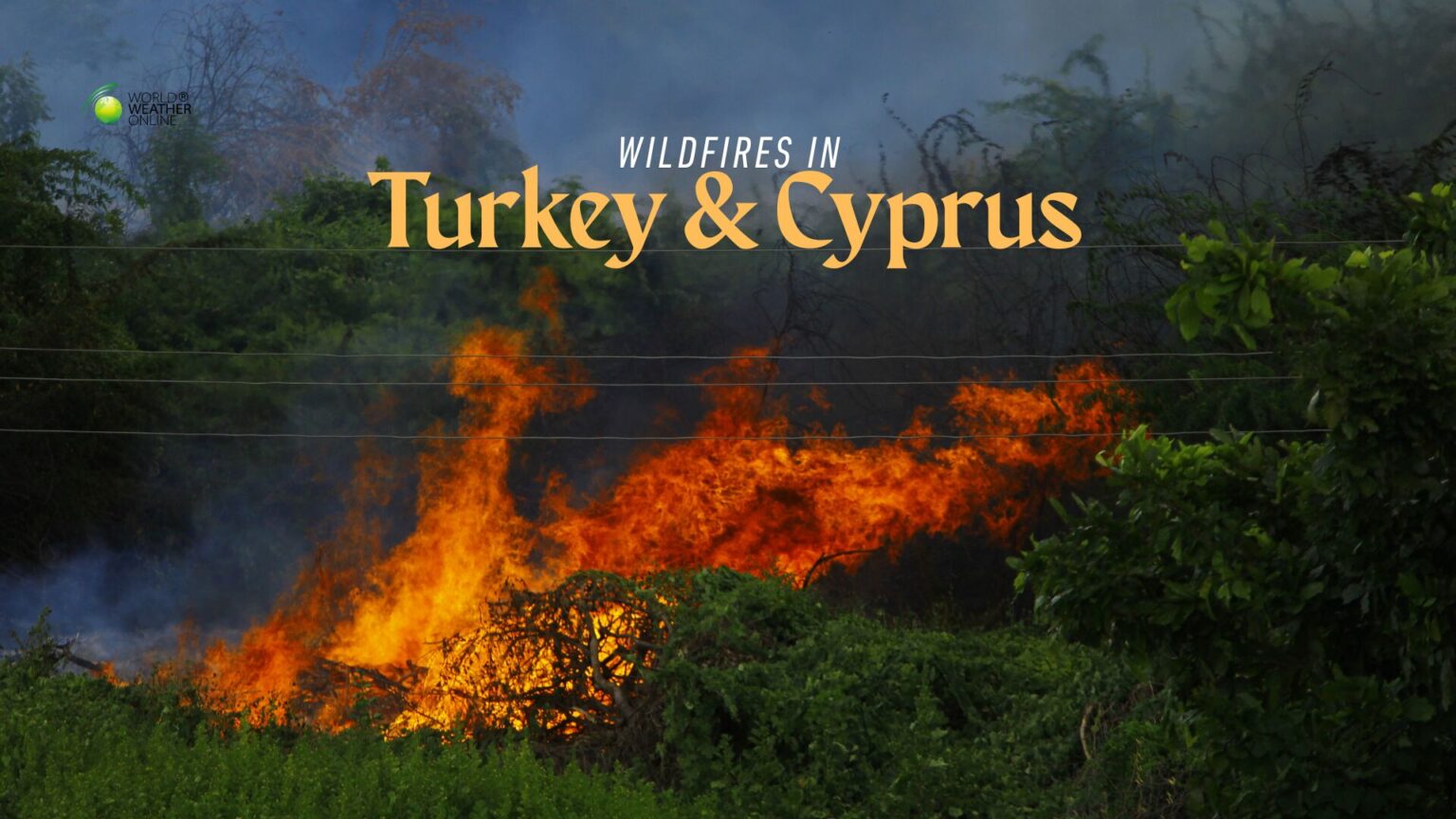A scorching Mediterranean heatwave has turned Cyprus and Turkey into firestorms, igniting devastating wildfires in Cyprus and Turkey. With temperatures soaring to 44°C, these blazes have claimed 12 lives, displaced thousands, and disrupted travel across the region. Planning a trip to Limassol’s mountains or Antalya’s beaches? Here’s how this fiery crisis, driven by relentless heat, is reshaping Mediterranean travel, plus practical tips to keep your journey safe.
Cyprus Wildfires: Troodos Engulfed
The wildfires in Cyprus have ravaged Limassol’s Troodos mountains since July 23, scorching 120 km² of forests and farmland. In Monagri, tragedy struck: an elderly couple, aged 77 and 84, perished in their car, trapped by fast-moving flames. Over 250 firefighters, battled the inferno, but Cyprus wildfire evacuations forced hundreds from villages like Souni and Lofou. Picture Sarah, a British tourist hiking in Troodos, startled by thick smoke and sirens. Her dream vacation turned chaotic, a stark reminder of the fires’ unpredictability and the need for vigilance in fire-prone regions.
Turkey’s Deadly Blazes
Across the sea, wildfires in Turkey struck Eskişehir, Afyonkarahisar, and Bilecik, claiming the lives of 10 firefighters on July 24 due to sudden wind shifts. Fueled by temperatures 6–12°C above normal, the fires tore through parched forests, threatening rural communities. A local official said, “This heat is unprecedented, fueling fires we can’t contain.” In other cities, evacuations disrupted coastal routes, stranding tourists headed to Izmir. Mehmet, a tour guide in Antalya, saw bookings plummet as smoke clouded resorts. These blazes have hit Turkey’s tourism heartland hard, forcing travelers to rethink itineraries.
How Heatwaves Ignite Wildfires
Ever wonder how heatwaves cause wildfires? Imagine a forest as a pile of dry kindling—one spark can unleash chaos. Cyprus’s Kouris reservoir, at just 15.5% capacity, reflects severe drought, leaving vegetation bone-dry. Turkey’s 44°C heat and fierce winds created similar tinderbox conditions. Experts link these climate change wildfires to global warming, with Carbon Brief noting 95% of European heat events are now more intense due to climate shifts. The Mediterranean heatwave isn’t just uncomfortable but a catalyst for destruction. Scientists warn that rising temperatures and prolonged dry spells are making such fires more frequent, turning scenic landscapes into fire traps across the region.
Travel Disruptions and Risks
The impact of wildfires on travel to Cyprus is profound. Road closures in Souni and Lofou have halted tours to vineyards, hiking trails, and historic monasteries, while smoke threatens travelers with asthma or respiratory issues. In Turkey, Bilecik’s evacuations have choked Antalya’s air, delaying flights and dimming beach vacations. Poor air quality has led to health warnings, and ash-covered beaches in Antalya have hit local businesses hard, with hotels reporting a 30% drop in bookings. Rural areas remain risky, and canceled tours are forcing travelers to pivot to urban destinations like Nicosia or Istanbul.
Safety Tips for Travelers
Navigating Turkey wildfires and Cyprus’s blazes requires smart planning. Monitor the Cyprus Meteorology Department or World Weather Online for real-time fire alerts before exploring. Pack N95 masks to combat smoke inhalation, especially for those with health concerns, and avoid rural areas like Troodos or Eskişehir until fires subside. Reschedule trips to affected regions, carry water, and keep emergency contacts handy.
Conclusion: Staying Safe in a Warming World
The wildfires in Cyprus and Turkey, fueled by a brutal Mediterranean heatwave, highlight the growing threat of climate change effects. With 12 lives lost and thousands displaced, these blazes urge travelers to stay vigilant. Use weather apps, avoid areas prone to fires, and keep your plans flexible. Explore World Weather Online for more insights to tackle global weather challenges. With preparation, the Mediterranean’s beauty remains within reach, even as the climate warms.




